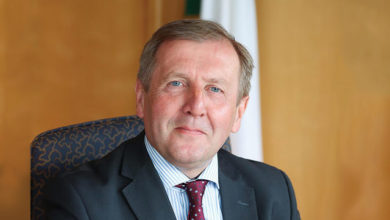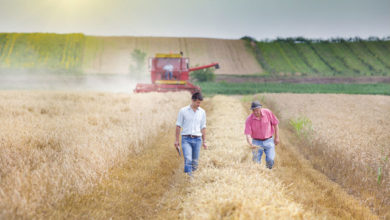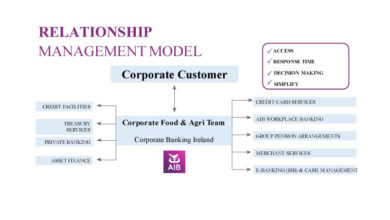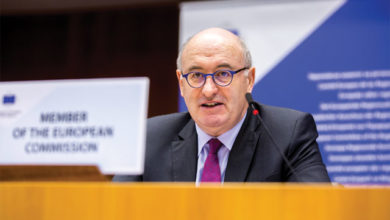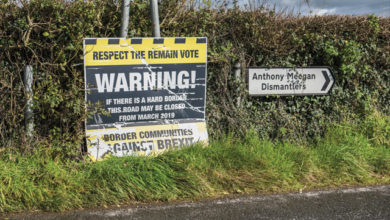Brexit: time for Enda to saddle up
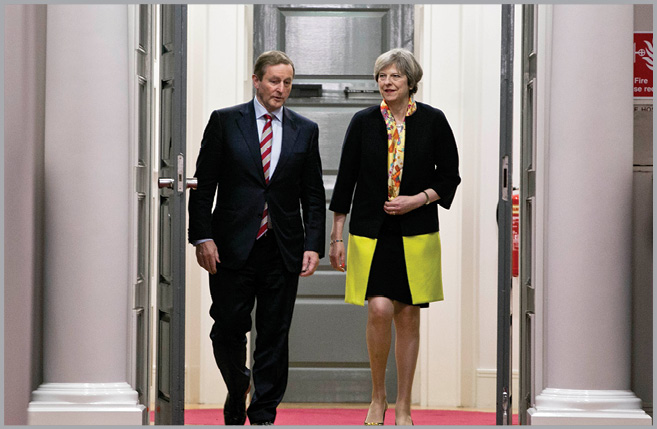

Taoiseach Enda Kenny must be the first out of the traps amidst Brexit trade negotiations. Agricultural journalist Richard Halleron outlines the high stakes for Ireland’s farming industry.
Let’s be clear: the prospects of the UK getting a free trade deal with the EU-27 post-Brexit should be totally discounted. Why would Brussels entertain any such an arrangement given Theresa May’s ongoing attempts to sign up free trade deals of her own with countries around the world? And that list grows longer with every day that passes: the US, New Zealand, India, Australia and, most recently, Turkey. Fundamentally, she can’t ride two horses. But all of this stacks up as bad news for Ireland’s agri-food sectors.
A hard Brexit will, almost certainly, bring with it the imposition of tariffs on exports from Ireland to the UK. And, if these are implemented at World Trade Organisation (WTO) rates – which are swingeing in terms of their magnitude – the negative impact on Ireland’s farming and food sectors could well be colossal.
Of course, the effect all of this could have on cross border trade in agri-food products will be equally impactful. Almost 500,000 lambs from Northern Ireland are slaughtered south of the border annually with an equal number of pigs crossing in the other direction for processing. But dairying could be the sector most badly affected with, literally, millions of litres of milk crossing the border in each direction on a weekly basis.
The other problem is the fact that Ireland, at least in theory, cannot agree any bilateral deal with the UK. All of the formal Brexit negotiations must be handled by Brussels. So it’s shaping up to be a pretty challenging period ahead for Ireland Agri-Food Inc. In truth, the trading problems we currently have, given the recent strengthening of the euro against sterling, will seem like a walk in the park if the formal Brexit negotiations go badly awry.
The month of March will see the UK triggering Article 50 of the Lisbon Treaty. Given Theresa May’s most recent comments, I sense she will want to get the subsequent negotiations over and done with as quickly as possible. Considering these circumstances, Dublin has no option but to get its shopping list of demands – not proposals – compiled and delivered to London and Brussels as soon as possible. Thereafter, Enda Kenny should prepare himself for a game of hardball with both jurisdictions. Sometimes being ‘caught in the middle’ has advantages. Brussels will want to ensure that everything possible is done to maintain Ireland’s full commitment to the EU while London will not want a protracted ‘Irish question’ to rear its head again.
Farming and food are vital components of the Irish economy – north and south. Put it this way: if the farming industry hits the buffers, then rural Ireland will go into cardiac arrest. The upcoming Brexit negotiations represent a high stakes game of poker for Irish agriculture. The Taoiseach has said that he will lead the charge when it comes to looking after Ireland’s affairs in this regard. So, it’s time he got on his horse.
Where farming is concerned, all of this comes down to a shopping list of demands with Ireland’s future trading relationship with the UK being the number one matter at hand. This really is a ‘do or die’ issue. Given the timetable that now seems to be unfolding the likelihood of Ireland’s food processing businesses saying goodbye to the UK and making up the deficit with new trading partners in the EU and beyond is remote.
It is the Irish beef industry that stands to lose most if the Brexit deal doesn’t stack up. The UK currently accounts for over 40 per cent of all Irish beef exports. What’s more, Britain is the most lucrative market for beef within Europe. Until now, all of this has added up to a win:win scenario for Irish processers and farmers. So, maintaining this status quo becomes an immediate priority for Dublin.

